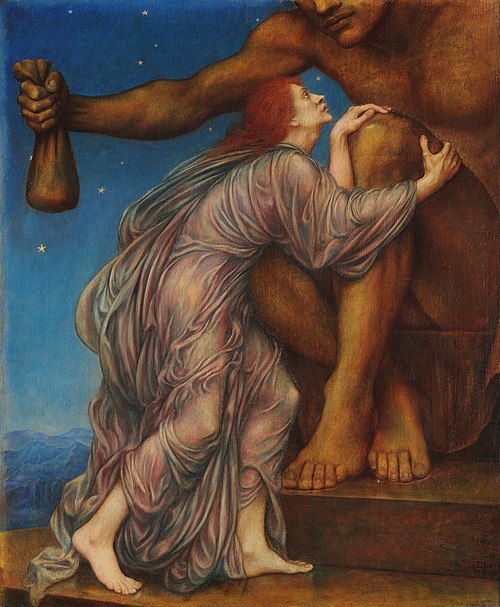When I was growing up in a small town in northern New Jersey in the ’50s, it seemed to me that all of us grammar school kids believed in the same big God; we just expressed our beliefs differently. By my utterly unscientific estimate at the time, one third of us were Jewish, another third Catholic, and the rest Protestant. The Jewish kids went to Hebrew school one afternoon a week, the Catholic kids went to catechism class, and rest of us, the Protestants, which included Presbyterian me, went to Bible study.
At Bible study, held in somebody’s basement, a couple of nice older ladies told exciting Old Testament stories – like Jonah being swallowed then spit out by the whale, and Joseph in his coat of many colors being dumped on the side of the road by his brothers — using a large felt board propped up on a wooden easel in the front of the room and cutout cardboard characters with felt on their backs so they stuck to the board. These ladies led us in songs like, “… Red and yellow, black, and white, all are precious in His sight — Jesus loves the little children of the world!” My sisters and I thought this was all great fun, much better than going home to the strife that might be there.
As the years went on I began spending more and more time visiting with friends at their homes after grammar school to avoid the strife at home. My Catholic friends’ families were large and rowdy, filled, it seemed, with naughty little brothers who pulled hair and threw pillows. My Jewish friends’ families were smalIer, calmer, and more orderly; their homes were much grander than my own and always sparkling clean and neat because they had live-in help.
My best friend Barbara Gomberg’s family, for instance, had a maid who had her own room in their house and did all the cooking, cleaning and laundry – the things my mother slavishly did at home. Their maid was a large Black woman who laughed a lot. Sometimes when Barbara and I visited her in her room in the afternoon, we’d listen to Rock ‘n Roll records on her record player, and she would teach us new dance steps.
Barbara’s regal mother was a piano teacher, who gave private lessons in their home, so Barbara’s house was always filled with beautiful music. Her father was a psychiatrist who met with patients in their home as well. I remember him as a short, jolly, balding man, who liked to reach out and pat me on the head and tell me, “You’re such a good girl.” He made me wish I had a father like him.
To a person, all of my Jewish classmates were the best students in each of my classes. They seemed to me to get unlimited support and encouragement from their parents. And these classmates went on to attend top-tier colleges and graduate schools, all paid for by their adoring parents. They later became doctors, dentists, lawyers, and business owners. I had nothing but admiration for all of them.
When I lived in New York City in the ’80s and ’90s, which, at the time, had a higher Jewish population than Tel Aviv, I had many Jewish friends, of course, including several Jewish boyfriends. Antisemitism never crossed my mind, nor my heart. Looking back now, I think I tended to put Jews on a pedestal – God’s Old Testament “chosen people” indeed. To me, they were born leaders, head and shoulders above the rest of us in every profession, as well as on every march for civil rights, peace, and justice.
But now. But now…
My hometown classmates and I are old people now, pushing eighty. The fatherly God I’d thought we all believed in is … Where? Gone? Forgotten? Many of those classmates who remained in that small, conservative town, I fear — the so-called Christian ones — voted for an anti-Christ for President, believing his evil lies and promises to improve the economy. Voting with their pocket books, I’d call it.
And a number of the Jewish ones, I deeply fear, support Israel’s bombing and ethnic cleansing of Gaza, believing Israel’s “right to exist” trumps reason and decency. And, oh, just look at all that gorgeous beachfront property along Gaza’s coast, aching to be developed by American and Israeli real estate tycoons!

(The Worship of Mammon by Evelyn De Morgan [1909])
Will I, and other non-Jews like me, be accused of antisemitism for calling this spade a spade? If I were still a scholarship student at Columbia in New York, would I be expelled for expressing my strong anti-Netanyahu views?
I’ve read that instances of antisemitism are sharply on the rise around the world. I believe the blame for this can be laid at Israel’s prime minister Benjamin Netanyahu’s doorstep. He and his right-wing henchmen are inflicting unspeakable harm not only on the people of Gaza, but also to Jews’ reputations worldwide. I stand with the old rabbis who cry out, “This [Gaza war] is wrong! This is not who we are as Jews! This is not what the Torah teaches!” This is certainly not what my Jewish classmates learned in Hebrew school.
No, I am not an antisemite. What I am is heartsick. I never could have imagined it would come to this. Oh, my big, embracing, childhood God, how have we forsaken you? Mammon is God now in the country of my birth. And Mammon has no heart. Nor soul.
